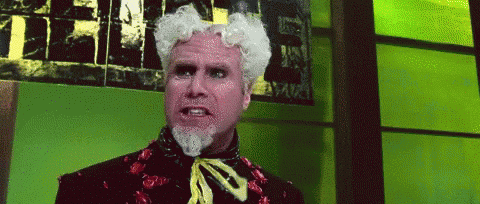The Metiria Turei Test
Another political media hit-job on a young, brown, female politician? Must be a day ending in "y".

It’s Friday, 4 August 2023, and with utterly dull regularity the Post has produced another hit job on non-Tory politician, Wellington mayor Tory Whanau.
Whanau is in the news near constantly because she keeps doing normal human things that, if they were done by any other politician, wouldn’t be news. She stands accused of showing respect to a man who died in a tragedy, forgetting to pay a restaurant bill (that she paid the next day) and making a goofy comment while tipsy, which is something close to 100 percent of the world’s adult population has done. What’s more, in a story so shit it was missing a byline, our bold Fourth Estate was able to reveal she was covertly bringing her dog to the office with such insidious secrecy that the dog had its own Instagram account. Shock horror.
On a related note: I find it notable when unflattering stories run with unflattering photos. Here’s one in which Whanau is pictured looking down. Her eyes appear half-shut and she’s sporting a double chin — as we all do when we look down, which is why photographers tell you to look up when you’re having your picture snapped. It’s the sort of photo so obviously bad that, if you’d taken it of your mate using your smartphone, you’d delete it without thinking.

Fun fact: news photographers are professionals who know what they’re doing, and Tory Whanau is perfectly good-looking. This is done on purpose. Photographers take hundreds of photos at events, most of which are good, then select a few to turn in to an editor and live in a publication’s photo banks. The editors select which photo to run with a given story, and if the story is unflattering, the picture will be often be bad too, to match the story’s tone. I’ve always thought that’s an interesting way to frame things. But I digress.
Today’s scandal is that the mayor traveled somewhere. Not once, but twice. Written up with deadpan excitement by Andrea Vance, whose superpower is creating mountains from molehills, the story reveals, ultimately, that the mayor was criticised by a political enemy who hates her. The piece labours for 456 words to deliver this boring conclusion somewhere in the middle.
Was the criticism in any way pertinent or otherwise made in good faith? Of course not. Here’s what was said by Wellington City Councillor Ray Chung, last seen losing an election to (checks notes) Tory Whanau.
“So much for a Greenie, reducing carbon,” he said. “If that film festival was so important why not come down the day after. But to fly down, then up and then back again?” It appeared hypocritical, he added.
Instead of the more interesting story of a councilor who takes a great steaming dunk on the mayor he’s meant to be working with, Vance writes about a.) the Mayor showing up to things in her capacity as Mayor (interestingly, other Vance stories have criticised her for not attending things) and b.) Chung’s allegation that Whanau is betraying the climate, which she is meant to be a champion of, by having too large an individual carbon footprint.
What the story fails to cover, because doing so would make it clear that it’s not in any way newsworthy, is that carbon footprints were invented by BP, that individuals living in a society created by and for fossil fuel interests have no way of magically opting out, and that even if they did it wouldn’t fucking matter because most carbon emissions are ultimately created by about 100 corporations. Whanau makes the same point in an Instagram post, sans my profanity, but it’s unlikely to lead to any kind of admission that the story was a beat-up. (Instead, it’s more likely to end in a headline screaming something along the lines of MAYOR SLAMS MEDIA “HIT JOB.”) Individual carbon footprints are doubly invidious; not only are they falsely posited as a cure for climate change, but they’re used as a stick to beat “greenies” with every time they do something (like “be alive,” or “their jobs”) that their political opponents deem hypocritical. These attacks are inevitably made in overtly bad faith, but political media keeps giving them validity because it gets clicks and eyeballs.

Note also that it doesn’t actually matter when “greenies” go out of their way to avoid emissions. Greta Thunberg, who won’t fly on principle, was roundly mocked for taking a yacht across the Atlantic to avoid carbon emissions by the exact same people who’d have cagistated her as a hypocrite if she’d chosen to fly or take a carbon-powered ship. Heads they win, tails you lose, climate activists.
What’s happening with Whanau is part of an easily discernible pattern. She’s young, brown, and a woman. Any two of these things would place her outside the political status quo, but she’s got the trifecta, and that means she’s constantly subject to the Metiria Turei test.
The Turing test is a test for whether a computer might be intelligent, and thanks to so-called “Artificial Intelligence” it’s being talked about a lot lately. For politics, I suggest the “Turei test” for a media heuristic that determines if a politician will be subjected to excessive, unfair scrutiny.
Turei, as you might remember, was hounded out of politics almost exactly six years ago for being honest about having committed a crime that’s the modern equivalent of stealing bread to feed your family, decades after the fact.1 It then transpired that she’d fiddled her address in order to vote for a joke political party. For this, she was relentlessly savaged by nearly all of New Zealand’s political media. The feeding frenzy is perhaps best summed up by this comment from Listener journalist Claire de Lore (emphasis added).
Metiria Turei's spectacular own goal in admitting to benefit and electoral fraud not only effectively ended her career but also took down two of her colleagues, savaged a healthy poll rating and led to Labour's changing of the guard and reversal of fortunes.
In fact, it was the breathless, skewed, and gleefully cruel media coverage of Turei’s circumstances that effectively ended her career. In that quote, we can see the single weirdest, worst tendency of the political media on full display: the fact that they are active political actors while simultaneously pretending they aren’t. “We don’t make the news, we just report it.” Bullshit! The talking heads of political opponents and lobbyists are deployed to disguise that it’s often the media themselves who criticise, attack, rebuke, slam, or whatever emotive headline word is in favour on a given day. Political media consistently ignore the fact that they wield power through their reporting, and that they tend to frame stories in a way that favours the status quo — while somehow simultaneously excusing their actions with the false inference that politics is all just one big game of sportsball. It’s a shell game that anyone can see through.
Metiria Turei had stolen out of necessity, and that was ignored. The context of her electoral fraud — casting a vote for a joke party — was dismissed by scalp-thirsty political media. So too was the fact that other (white, male) political leaders committed technically legal rorts that cost taxpayers far more than anything Turei had done. The miniscule magnitude of her crime didn’t matter, because hers was the worst of political sins: the “bad look” — as judged by a media who decides both what is “bad” and what gets to be a “look.” Turei was young, brown, a woman. She had the trifecta, and consequently, she was held to a different standard.
That’s the Turei test in action. New Zealand’s political media, in their slavish, semiconsious devotion to the status quo, will make damn sure that other young, brown, female politicians are subjected to it too.
Many beneficiaries are made into liars about “being in a relationship” because, if they are honest, they’ll be cast into financial hell for the crime of having sex while poor. ↩




